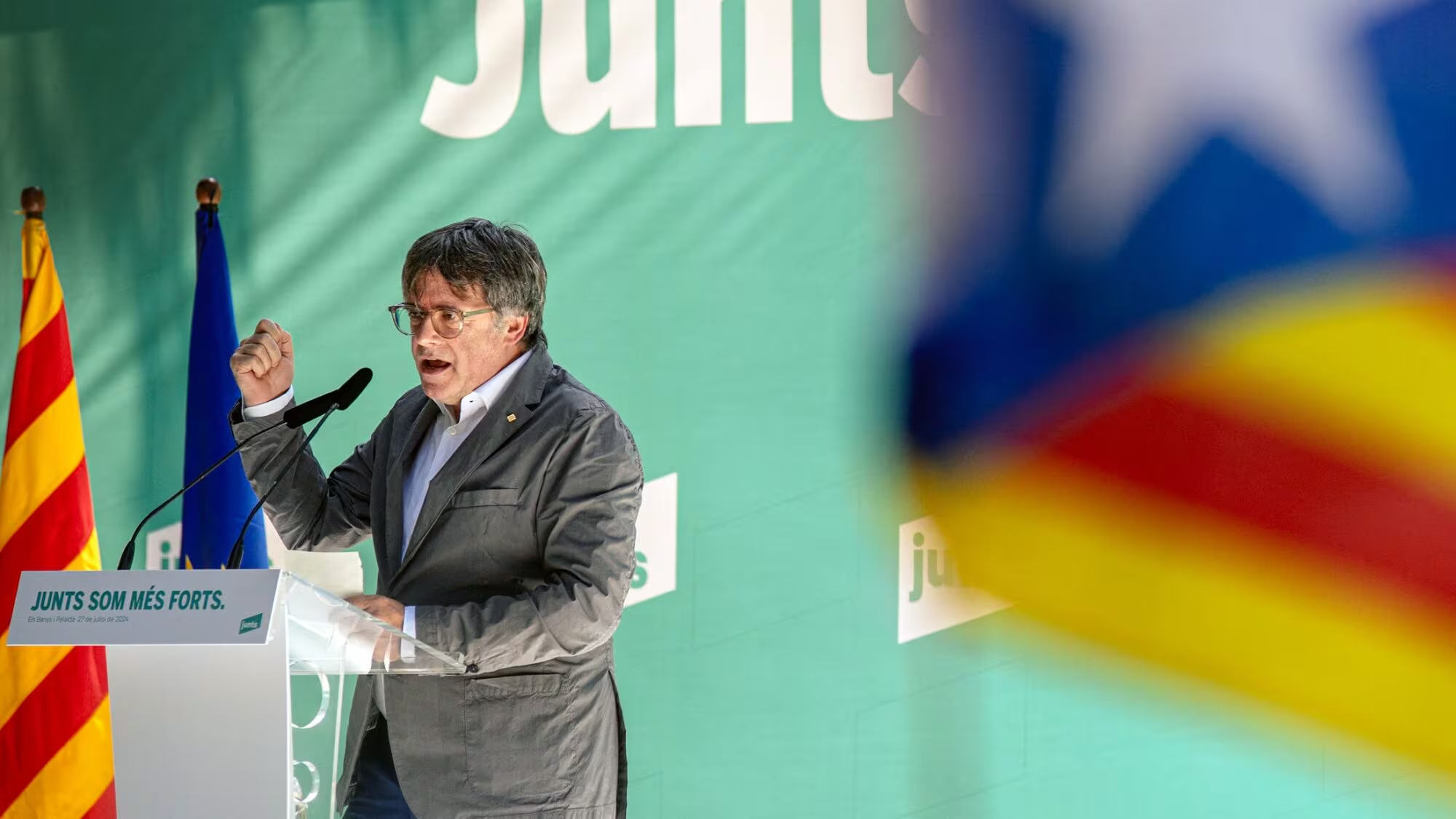The fugitive Catalan separatist leader Carles Puigdemont has announced he will return to Spain on Thursday, risking likely arrest, a move that could destabilize the country’s ruling coalition.
Puigdemont has been living in self-imposed exile in Belgium for seven years after organizing an illegal independence referendum in Catalonia. He has stated he will be present at the Catalan parliament in Barcelona on Thursday as the region’s new leader is sworn in.
In a video message released Wednesday, he mentioned that “under normal democratic conditions, an MP like me announcing his intention to attend such a session would be unnecessary, it would be irrelevant. But our conditions are not normal democratic ones.
“There are two members, former regional minister Lluís Puig and myself, who cannot attend freely. This challenge must be answered and confronted.”
In May, Spain’s parliament passed a controversial amnesty law proposed by the country’s socialist prime minister, Pedro Sánchez, to gain support from Catalan separatists for his return to power.
The law covers around 400 people involved in a symbolic independence referendum in November 2014 and the illegal unilateral poll three years later.
However, in July, Spain’s supreme court upheld arrest warrants for Puigdemont and others charged with misuse of public funds, ruling that the amnesty law did not apply to them.
“That I can attend the [Catalan] parliament should be normal,” Puigdemont said in his video message.
“That to do so risks an arrest that would be arbitrary and illegal is evidence of the democratic anomaly we have the duty to denounce and fight, not because we are pro-independence, but because we are democrats.”
Police have reportedly been instructed to prevent Puigdemont from entering the Catalan parliament, with measures including limiting access to the area, conducting room-by-room inspections, and even searching the sewers.
“These are standard security procedures that are carried out before any investiture ceremony,” a spokesperson for the Catalan police force, the Mossos d’Esquadra, told Politico.
In the recent Catalan regional elections, the socialists won the most seats but did not achieve an overall majority.

The moderate pro-independence Catalan Republican Left party (ERC), long a rival to Puigdemont’s Junts per Catalunya, has agreed for the socialist former health minister Salvador Illa to be sworn in as the regional president.
He will lead the first non-nationalist Catalan government in over 20 years, reflecting the independence movement’s decline since its peak in 2017.
Puigdemont claims it is his duty as the former president in exile to attend the investiture and argued in an open letter that if he is arrested, ERC must share some of the blame. ERC responded that the judicial system, not they, would be responsible for his arrest.
His supporters argue that the trip to Spain is necessary.
“Puigdemont returns to Catalonia after seven years in exile. He does so for the same reason he left: to demonstrate that Spain’s rule of law has failed regarding the pro-independence movement and Catalonia,” said Aleix Sarri, Junts’ secretary for international affairs and a former adviser to Puigdemont.
“Jailing him despite the amnesty law would show that the Spanish judiciary treats the Catalan pro-independence movement as an internal enemy to be repressed. If a pact for an amnesty law can’t be upheld, nothing will be, and his detention and imprisonment would make the case for independence clearer than ever.”
Many see Puigdemont’s return as a final gamble for the separatist leader, who has previously shown little interest in martyrdom. Most of the independence movement has concluded that his policy of el choque de trenes, or train crash confrontation with the Spanish government, is at a dead end.
Acting Catalan president Pere Aragonès has stated that even if the investiture is delayed, it will proceed.
Puigdemont’s arrival and potential arrest could pose a challenge for the Sánchez government. The conservative People’s Party (PP) won last year’s snap general election but lacked enough support to form a new government.
This allowed Sánchez’s socialist party to try to gather votes, which could only be done by offering amnesty to Catalan political parties. However, this move has been highly controversial, sparking demonstrations across the country.
Lola García, the deputy editor of the Catalan daily La Vanguardia, a paper historically aligned with Puigdemont’s party, noted that his arrival could have broader implications for Spain’s politics.
“The possibility of Puigdemont being jailed might complicate things for the Spanish government, although a change of government wouldn’t be in his interest at this point,” she said. “But it won’t revive the unity of the independence movement or the independence process.”
Despite a formal separation of powers, the Spanish judiciary is viewed – not only by Catalan separatists – as highly politicized and an unreformed relic of the Franco dictatorship.


